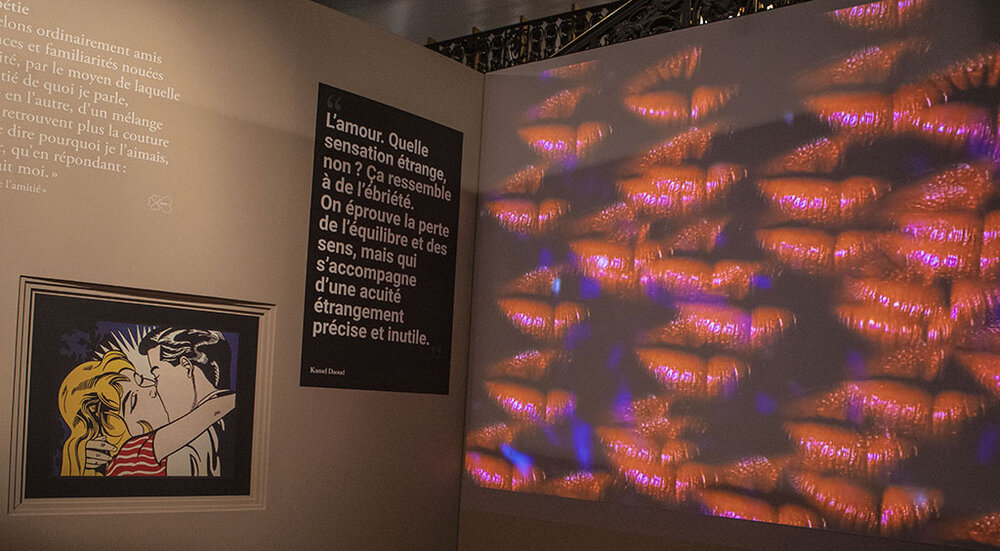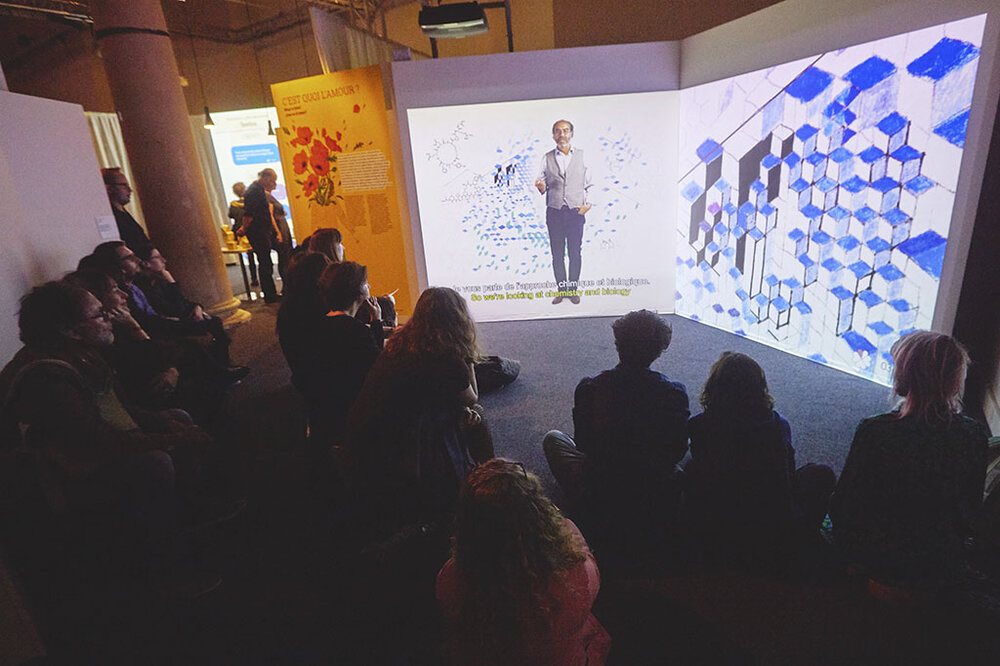Love is a thing that affects us all, but seems intangible. In turn fragile, passionate, alarming or an all-powerful driving force behind many affairs, it is actually difficult to define.
Two separate galleries – the gallery of attachments and the gallery of science – present an exploration of the ever-changing worlds of love, swept and turned upside down by technological revolutions.

The gallery of attachments presents an assortment of objects, situations, poems, quotes, images, etc. which are categorised by four Greek words: eros, desire, physical passion; storge, love of family; agape, disinterested love; philia, friendship, social bond. Where English has only two terms – love or like – to express fondness for a friend or a passion for chocolate, Greek allows further shades of meaning.

The gallery of science brings together seven eclectic subjects explored by philosophers, sociologists, sexologists, psychoanalysts and neuroscientists. They are fragments of a scientific message, a reference to Roland Barthes’s A Lover’s Discourse: Fragments published in 1977, which builds into an abundant dissertation on love. The book’s structure is like a network whose entrances are such varied concepts as ‘Absence’, ‘Delight’ and ‘Jealousy’. It is still a remarkable work in the field of literature devoted to love.


